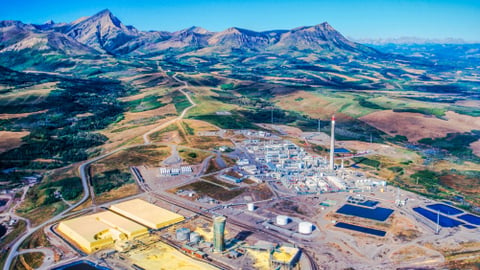2023 CEMA Conference highlights
The 2023 Canadian Energy Marketing Conference took place at the Marriott Downtown in Toronto last week from April 17 to 19. Industry players National Energy Equipment Inc. and Gilbarco Veeder-Root were key sponsors and presenters of the conference hosted by the Canadian Energy Marketers Association (CEMA).
This years’ conference featured a lineup of key industry experts that shared insights from their industries.
Jennifer Stewart, CEMA president and CEO led this years’ conference. Day one included a pre-conference seminar presented by National Energy Equipment, followed by a keynote from Bill Morneau, Canadian businessman, former Minister of Finance, board member of CIBC and author.
Day two of the conference featured “Renewable Fuels and The Canadian Transportation Energy Transition”, presented by Andrea Kent, past-president and board member of Renewable Industries Canada (RICanada).
Kent discussed Canada’s Clean Fuel Regulations and how the new incentives – paired with the U.S.’s recently mandated Inflation Reduction Act’s (IRA) Tax Incentives – affect manufacturers in the sector and the industry as a whole.
“Production incentives, carbon-capture incentives are probably making the most headlines right now,” said Kent, “but we should look at low-carbon production as a whole.”
She stressed the importance of looking at tailpipe zero versus true net-zero when considering emissions-reduction in Canada’s transportation industry.
Kent also discussed the importance of looking not only at the federal policies, but also provincial policies like the Ontario E15 mandate, which requires fuel suppliers to increase the amount of renewable content in regular-grade gasoline to 15%.
“Some provinces (like Ontario and Quebec) have become a bit more bullish in their policies since the Feds implemented the CFR. It’s sort of given them the ability to reach for those incentives now that the floor has been raised,” added Kent.
Brian Kingston, president and CEO of the Canadian Vehicle Manufacturers’ Association (CVMA), stressed the importance of diversification in his session, “The Road to 2035, Destination Zero Emissions”.
Kingston spoke about a global push to build a battery supply chain for electric vehicles: “EV production went from 4 to 7% in a year,” said Kingston, “yet, we found that only 28% of Canadians are interested in EVs right now.”
Canada’s lack of charging infrastructure and affordability are key issues that have resulted in us falling behind other countries, added Kingston, who pointed out that we still lack incentives to set up at home chargers for light-duty vehicles.
When looking at fuel alternatives for medium- and heavy-duty vehicles, Kingston said that “the general consensus is that hydrogen has the most promise,” but we’ve yet to see the necessary infrastructure to charge and maintain those vehicles either.
[Read more: “What ever happened to hydrogen?”]
Anne Kothawala, president and CEO of the Convenience Industry Council of Canada (CICC), stressed the importance of the two industries (convenience and energy) working together. She spoke about the CICCs work in lobbying on behalf of c-stores, and in turn, gas stations.
With $54 billion in annual sales, a $22.5 billion contribution to taxes and 43% of taxes collected as an industry coming from fuel taxes, Kothawala stressed that the industry can’t be taken for granted.
Michelle Coates Mather, executive director of the Canadian Transportation Alliance, presented findings from the alliance’s research in “Embracing Canada’s On-Road Low-Carbon Transportation Opportunity”, something that we covered extensively when the research was released.
[Read more: “Transportation industry should embrace multiple pathways to reach net-zero 2050: CTA”]
Bob Larocque, president and CEO of the Canadian Fuels Association, sat down with Jennifer Stewart for a fireside chat: “Implication of Federal/Provincial Policies on Canada’s Downstream Sector”.
Larocque and Stewart discussed the implications of both Canada’s budget and the U.S.’s Inflation Reduction Act, which Larocque said would have negative impacts on Canadian fuel producers, which introduced the production tax credit for alternative fuels produced in the U.S.
He said that the tax credit has U.S. companies and companies producing fuel across the border while hindering Canadian producing fuel here at home.
The 2023 CEMA Conference wrapped up on day three with a networking breakfast featuring former National Hockey League player, Darryl Sittler and a post-conference seminar hosted by Advanced Biofuels Canada, exclusive to attendees.
This years’ show sponsors included National Energy Equipment, Gilbarco, Waleco, Dover Fuel Solutions, Bulloch Technologies, Norcan, Valero, Canadian Tire, Parkland and the Canadian Fuels Association.







